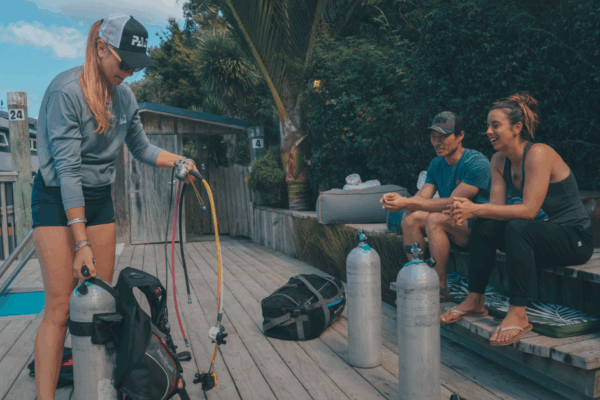
When striving for diver safety, especially when supervising novice divers, maintaining control and accountability of the divers in your care is unquestionably the highest priority responsibility you have as a dive professional.
Despite the direct supervision requirements clearly outlined in the Instructor Manual, PADI does receive several incident reports every year which involve the loss of control of Open Water Diver Course students or Discover Scuba Diving participants. Sadly, the difference between a problem (such as sudden panic during a mask clearing exercise with an attempt to bolt to the surface) that is immediately responded to and resolved, and an event that turns into an injury, may be little more than a momentary lack of attention by the PADI Professional.
While control incidents (such as a student diver bolting toward the surface) do occur during skills performance, because instructors are typically in a direct supervision role evaluating the skill, they are in close proximity and able to readily respond. During ascents and while exploring the dive site
during training or guided tours however, the difficulties in keeping all students or participants in clear sight at virtually all times are magnified.
In a PADI Open Water Diver course, exploring the dive site during training is the first slight loosening of control that the students experience, particularly as they learn independent buddy-team dive skills. Especially in conditions with silt or generally limited visibility, a few metres/feet of distance can make the simple difference between students/participants being constantly observed or completely out of sight. While effective control can be more difficult in such conditions, it can be achieved with proper attention, focus and positioning. The appropriate use of certified assistants provides additional control in these circumstances.
Maintaining control and accountability of the divers in your care is the highest priority responsibility when supervising novices such as Discover Scuba Diving participants and PADI Open Water Diver course student divers. This means not only recognizing the value of using certified assistants, but also carefully considering placement, whether it’s you alone, or you and your assistants. It also means being aware this is not a static process; adjustments to your approach may become necessary at any time during a dive, such as when either conditions (such as worsening visibility) or circumstances (such as a student or participant who is tending to wander or fall behind) warrant.
Perhaps the most important need of all is your constant attention and focus. It’s far too easy to become complacent on dives at a familiar dive site that you may have conducted 100 times; even a momentary lessening of focus can have – and has had – tragic results.


